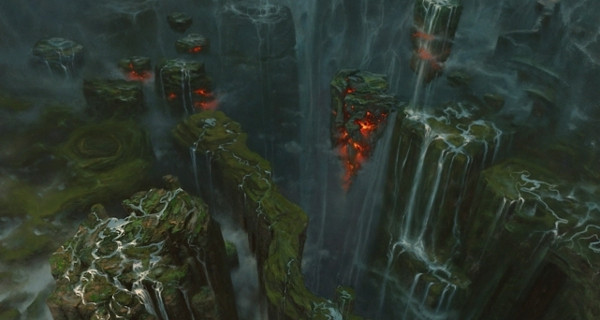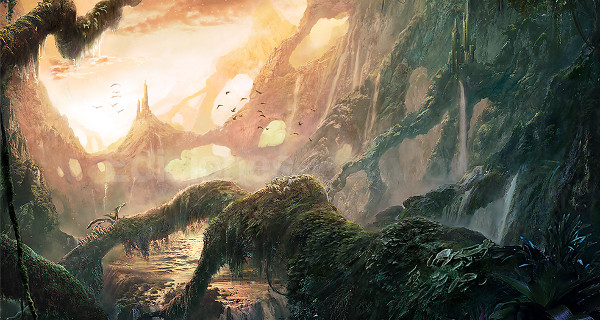So the largest RPG playtesting of human history and probably the whole galaxy has ended.
This "review" of mine will be very short hopefully, and bullet-point structured, to make it both as easily readable and as bull's-eye-aiming as possible.
My big likes:
- Class features are really meaningful.
- Subclasses feel quite different from each other.
- Skills are back.
- Multiclassing kind of works.
- Feats are important.
- Exploration and Interaction rules.
- Human racial bonuses: the whole internet is against them, and they still continue to persist as the most super-human ones among all the races... Humans as the most super-human race, really... And come on, a bonus feat would be completely ok and would make them special. And since it can be traded for a double +1, you could also have a "super-human human" if you wanted, just not as super as the current. Also with proficiencies on the table, things such as an extra proficiency which could even be a saving throw one, would go a long way. I'd really just give them these two features. Also remove the extra language: the extra proficiency can be turned into one, or the extra feat could give even three (Loremaster).
- Skill dice are gone: they added a lot of fun. I understand the need to have expert classes that bypass the dice unpredictability, but then give static bonuses to those expert classes, and leave skill dice the standard, no? Why not? It makes more sense, in general. It wouldn't even need a lot of change. Just make a standard skill dice progression for everybody, and leave the Expert class feature as it is: a +5 on top.
- Multiclassing grants all proficiencies with one-level dips: The solution is dead-simple: give 1 or 2 proficiencies for each level of the class you multiclass in. This forces some commitment and makes each level full of interesting choices such as gaining new weapon, armor, tool, skill, or saving throw proficiencies. Endless combinations. Also make armor proficieny progressive, to solve the problem of Wizards taking one level of Paladin/Fighter and suddenly casting everything in plate. Make them spend at least 3 levels in those classes (one for light, one for mid, one for heavy armor prof.), and the trade would be fair.
- Multiclassing casters are boring: getting all those spell slots solves a lot on the power side, but you end up casting the same spells over and over again. I would simply give the option to trade in one spell slot (or maybe two, must think about it) for one "caster level" in the class you're advancing. This way you can have more spells known and less slots, if you wanted (I want).
- Non-casters will be forced to take special sub-classes to multiclass into casters well. This is wrong, it really makes multiclassed character less varied, which goes exactly against the whole point of multiclassing. I would solve this in a very simple way: non-caster levels still counting as 1/4 caster levels for the purpose of spell slots. As opposed to the 1/2 caster levels of Paladins, Rangers, and Bards.
- Mage having one spell list that will predictably be passed on to Sorcerers and Warlocks. This is actually what scares me the most. If alternative spellcasters, which are meant to be different from the Wizard, have to use the same spell list (which implies an equivalent casting system, even if not equal), then it goes against the whole purpose of alternative casters. Mearls said this makes it really easy for campaigns to add their specialized/alternative casters into the game. But hey, why not adding them as subclasses of Wizard if they use this system, OR subclasses of Warlock/Sorcerer when we'll see those? This way we split Arcane magic in three really different systems and approaches, which can further refined into flavorful sub-categories. I agree that making Warlocks and Sorcerers really different could be something for a later specialized book and not the Player's Handbook, but thats better than having the words "Warlock" and "Sorcerer" associated to something extremely similar to Wizard in the Player's Handbook, and then having to invent silly class names when the inevitable REALLY ALTERNATIVE casters will come out in later books! Really, it's just a matter of planning ahead the products, WotC!
- Skills not being optional: I love skills, but you can't say they can be ignored if they add a static bonus. And even with my dice proposition, they can't be simply skipped. AND you can't impose them to a player-base that includes really old-school (or lazy) players. The solution is very easy and under our very nose: leave the dice as the optional skill system, and use the new proficiency bonus as a static bonus on all ability checks for characters not wanting to use skills. Then every class feature that references to skills, make it modular: "if not using skills, change it to +X to checks based on attribute Y", a lot like the previous playtest with the Expertise Dice, but with static bonuses.
- Feats come too late. And I'm happy to have read a tweet by Mearls admitting they're thinking about giving a first feat somewhere between 1st and 3rd level...
- Skills associated to one ability score. And again, I'm happy to have read a tweet by Mearls saying that he wants to make it clear they should be made ability-score-independent.
- Modularity: retain the good new ideas like skill dice, but make them optional!),
- Customization: again only on demand, such as trading spell slots acquire through multiclassing with an advance in "spells known", or equivalent "caster level"/"spell level" advances.
- Backgrounds: making them evolve with the new rules for off-time, or how they call non-adventuring time. I think they should also evolve with levels, giving new, more advaced traits, and the ability of retraining proficiencies or accessing special equipment, or whatever really. Giving them such a structure would make them more similar to 4e themes and if standardized well enough, players could mix and match stuff from multiple backgrounds to represent a truly dynamic and unique growth for their characters.
- Big future-related choices such as Mage subclasses: be careful what you name and grade Sorcerer and Warlock in a Player's Handbook: if you name with those improtant names two subclasses that use the same spells as Wizards, you'll eventually need to name with some other obscure words new classes that better represent those concepts as truly separate and unique compared to Wizards.
- HUMAN RACIAL BONUSES.
















I'm not super upset with humans, but I do find their ability lackluster. Not that humans are anything more awesome than elves and dwarves, but they seem to just be missing something that goes along with their uniqueness and ability to adapt.
ReplyDeleteI loved the Warlock and the Sorcerer back in the August 2012 playtest packet. While those casting systems/spells weren't entirely fleshed out, I liked how the different spellcasters worked extremely different. That felt good. I can deal with the spell slots for all the classes right now, but I expect that the Sorcerer and the Warlock use a different system. It will just feel too much like a Wizard if they don't.